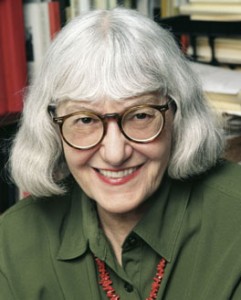Words of the Week: Cynthia Ozick
 “The subject is vile and searing and omnipresent, but one cannot address it in a 15-minute interview; or, in fact, in an interview of any length; nor, indeed, can one have the heart just now to address it in any superficial form or forum at all. Jews and the Jewish state are once again under siege everywhere: by the United Nations, world headquarters of anti-Semitism; by, it goes without saying, the religious leaders of Islam and their constituents; by the European Union; by the Obama/Kerry vise, including the appeasement of Iran, a regime sworn to the destruction of the Jewish state, to which the West is by its silence wholly indifferent; by the so-called Human Rights movement; by the BDS assaults; by, in America, our own innocently deluded voting pattern; by, in America, our distancing from and growing indifference to the State of Israel; by, in America, our ignorance, our triviality, and our lack of any historical sense; and by much, much, much more.”
“The subject is vile and searing and omnipresent, but one cannot address it in a 15-minute interview; or, in fact, in an interview of any length; nor, indeed, can one have the heart just now to address it in any superficial form or forum at all. Jews and the Jewish state are once again under siege everywhere: by the United Nations, world headquarters of anti-Semitism; by, it goes without saying, the religious leaders of Islam and their constituents; by the European Union; by the Obama/Kerry vise, including the appeasement of Iran, a regime sworn to the destruction of the Jewish state, to which the West is by its silence wholly indifferent; by the so-called Human Rights movement; by the BDS assaults; by, in America, our own innocently deluded voting pattern; by, in America, our distancing from and growing indifference to the State of Israel; by, in America, our ignorance, our triviality, and our lack of any historical sense; and by much, much, much more.”
Cynthia Ozick, in “Anti-Semitism: Where Does It Come From & Why Does It Persist?”, a free e-book from Moment magazine. (You don’t need to agree with Ozick’s every point to admit awe with the writing here. And you’ll find more than three dozen individual perspectives within the e-book itself.)
